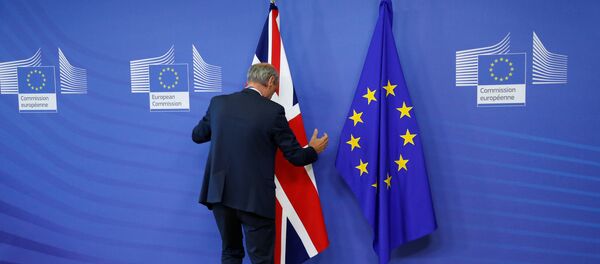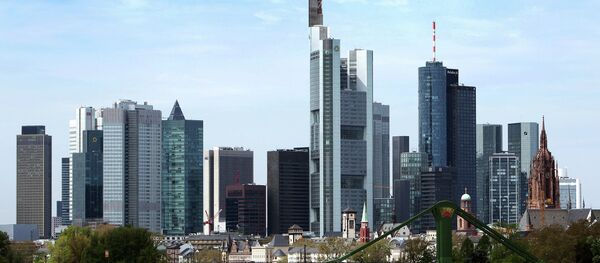Kristian Rouz – As the UK heads towards a divorce with the EU, its economy is facing stronger headwinds, stemming from the uncertainty over the path of Brexit, which is stirring concern among investors and market participants alike. The weaker British pound has produced a significant expansion in domestic manufacturing, but lower capital influx and an overall liquidity squeeze are affecting fixed investments, resulting in gloomy GDP projections.
The weaker pound has failed to produce a boost to GDP expansion this year, the British Chamber of Commerce (BCC) said in its most recent report. The BCC’s quarterly growth forecast has been lowered as the group observed that there is no sign that the economy could return to healthier levels of expansion in the near-term.
The BCC represents thousands of private-sector enterprises that employ over five million workers in Albion, and thus reflects the sentiment of a significant share of the UK’s private sector.
"The rising up-front cost of doing business in the UK, the uncertainty around Brexit, and the constraints created by skills gaps and shoddy infrastructure collectively outweigh any benefit arising from the recent depreciation of sterling," Adam Marshall, director-general of the BCC, says. "A cheaper currency does not automatically mean an export boom."
UK exports, nevertheless, have increased since the pound’s dramatic devaluation in mid-2016. However, the sterling’s revaluation this year has compressed the gains in exports, meaning that currently, the UK’s currency is not weak enough to offset Brexit-related challenges.
While UK inflation is predicted to rise to 2.8 percent, the BoE is unlikely to raise borrowing costs because of Brexit-related uncertainty, and the lack of consensus in the Cabinet over the UK’s stance in the EU negotiations. Across the channel, however, the position is quite coherent – the EU demands an exit fee, without providing any guarantees of a lucrative trade deal.
Ironically, recent developments in the UK’s foreign trade have underlined Blighty's solid ties with the continent, and the much weaker trade links with the former British Empire and the rest of world.
In July, according to a recent report from the National Institute of Economic and Social Research (NIESR), the UK foreign trade deficit narrowed, reflecting the gains in exports. However, the UK’s exports to the continent rose by £1.3 bln, while Britain’s trade deficit with the rest of world widened to £2.4 bln, reflecting the rise in imports of raw materials and consumer goods.
Overall, UK exports rose 0.2 percent month-on-month, and 0.6 percent on a quarterly basis.
The Office for National Statistics (ONS) confirmed their previous reports of the acceleration in the UK’s manufacturing sector despite all woes, as the rise of output erased the loss of production to 0.1 percent in July from 0.6 percent the previous month. The still-high input costs, and the inconclusive path of economic reform in the UK are slashing percentage points off the non-financial sector’s performance.
The BCC says the Cabinet must come up with a decisive Brexit plan, and coordinate a transition deal with the EU soon, otherwise the lingering uncertainty will produce increased downward pressure on the nation's productive forces.
Growth projections for the UK are not quite as gloomy, and were even subject to upward revisions in the wake of the foreign trade realignment, but still fall short of the desired numbers.
Meanwhile, the fiscal authorities are expecting a quicker pace of growth for the year. The Office for Budget Responsibility said the UK economy will grow 2 percent this year, reflecting the solid consumer and investor spending; however, this growth model is not sustainable and is subject to revisions in the Autumn Budget.
The UK economy, however, might still defy the murky projections yet again. This time, however, the pressure on the government to resolve the Brexit unease is mounting, as businesses demand more clarity in the government’s planning.






